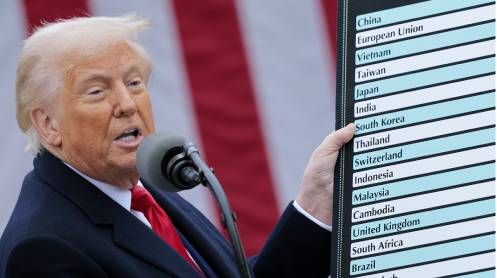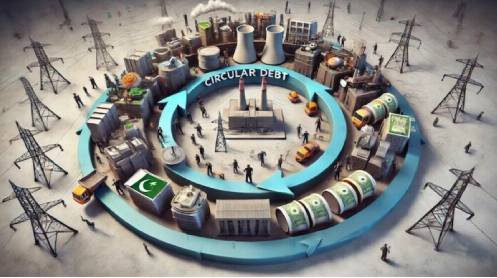Pakistan as a state is still functional though there are fears that a prolonged political-cum-constitutional crisis may eventually paralyse it — at least temporarily. On the surface, life is normal, though very tough for the majority of Pakistanis.
Yet, at more profound levels, the predictability of public life stays under danger. No matter what the result of the progressing political/sacred emergency spinning around races in Punjab, the requirement for changes in the connection between the state organs and their member bodies will stay set up.
How those changes are made, or whether they are postponed once more, will reclassify the qualities of our public life from now onward, indefinitely — and unsurprisingly affect the public economy both in the short and long run.
Is there an acknowledgment of such a chance at the most elevated levels of the state organs, including the parliament, prevalent legal executive and the public authority — as well as “the almighty foundation”? Do ongoing occasions demonstrate that the acknowledgment is there? How best could things at any point be figured on a mission to keep away from such a chance? Nobody’s entirely certain. There’s absolutely nothing that nobody can’t say, without a doubt. Hopefully for whatever might be most ideal.
Having said that, how about we see how quick the economy continues to crumble in the midst of all the political/sacred bedlam. The most recent update of the Pakistan Agency of Measurements (PBS) shows that huge scope producing (LSM) yield in July-Feb 2022-23 fell 5.56 percent, and the year-on-year decrease in February alone was 11.59pc.
The agency’s itemized information on the country’s outside exchange of products additionally uncovers that during July-Walk 2022-23, Pakistan’s food imports were practically twofold its food trades — $7.334bn against $3.815bn.
This sharp decrease in LSM result can be anticipated to turn out to be much more honed toward the finish of the financial year in June, and the proportion of food products to food imports can’t be anticipated to change altogether in April-June.
Enormous scope fabricating saw a deteriorating energy emergency and fatter energy bills after February. Furthermore, political mayhem in the business that generally negatively affects fabricating has additionally gone from terrible to more regrettable after February.
Also, there isn’t anything in sight to recommend that the food imports bill will fall in April-June, and that too in the midst of mellowing of import limitations from the very outset of this current month. Nor is there anything to urge us to accept that food commodities will develop fundamentally during this quarter.
Declining LSM yield likewise lessens the development of limited scope enterprises, all the more so when the whole economy is in a difficult situation as it is at the present time. What’s more, that causes a fall altogether modern result and prompts joblessness. That is the thing we have been encountering in Pakistan.
Without a trace of modern development, farming can be a distinct advantage for the economy. However, because of last year’s super floods and record acceleration in input costs, including energy costs, farming, as well, is struggling. As a matter of fact, that is one main justification for the ongoing year’s enormous ascent in food imports and a colossal decrease in some food trades.
During July-Walk 2022-23, Pakistan needed to import 14.7pc more wheat than in July-Walk 2021-22. During a similar period, it sent out around 19pc less rice volume than in a year-prior period. That, thus, prompted a more prominent outpouring of unfamiliar trade than the inflow.
By and large exchange stock import/export imbalance in July-Walk 2022-23 waited around $22.9 billion notwithstanding all the levy and non-tax limitations acquainted prior with contain it.
In the new past, much expectation was nailed to administrations sends out for remunerating part of the way for the shortfall in stock exchange. In any case, the most recent PBS details uncover that in July-Feb 2022-23, administrations sends out developed only 6.5pc on-year to $4.78bn — and the nation booked a little administrations import/export imbalance of $340bn as administrations imports consumed around $5.12bn.
Clearly in administrations exchange, as well, Pakistan can either book an ostensible deficiency toward the finish of the monetary year in June or, in the most ideal situation, report a little excess — excessively little to affect in general outer exchange.
Thus, the nation will enter the new financial year in July with a to some degree contained however volume-wise still huge outer import/export imbalance, negative development in the business and exceptionally low or no development in farming.
As per the generally distributed evaluations of the World Bank, the Asian Advancement Bank and the Global Money related Asset (IMF), Pakistan’s monetary development in FY23 (finishing off with June) will be somewhere close to 0.4pc-0.6pc.
With the modern area going through one of the most testing times in Pakistan’s set of experiences, agribusiness enduring greatly directly following the super floods, and the administrations area staying discouraged, the new monetary year will open with gigantic difficulties for policymakers.
Are legislators and (probably) unopinionated powers that share the current “mixture system” ready to address those difficulties? Indeed, it’s hard to express in light of what has so far been imparted to the media in general.
All things being equal, legislators and their benefactors in “the foundation” are obviously doing excessively little to end the further developing of the current political/protected emergency that continues to intensify the monetary difficulties.
All that individuals in power are telling the country is the way resolutely the common military authority has worked as of late to win affirmations of further forex support from well disposed nations. That is without a doubt an accomplishment in the ongoing climate.
In any case, the course of action of unfamiliar assets to keep away from additional exhaustion in forex holds and to fit the bill for the IMF finances won’t consequently resolve all underlying monetary issues that challenge us now, and that will challenge all the more seriously in the following financial year. What the nation needs critically is a reasonable, definite Monetary Restoration Guide.





